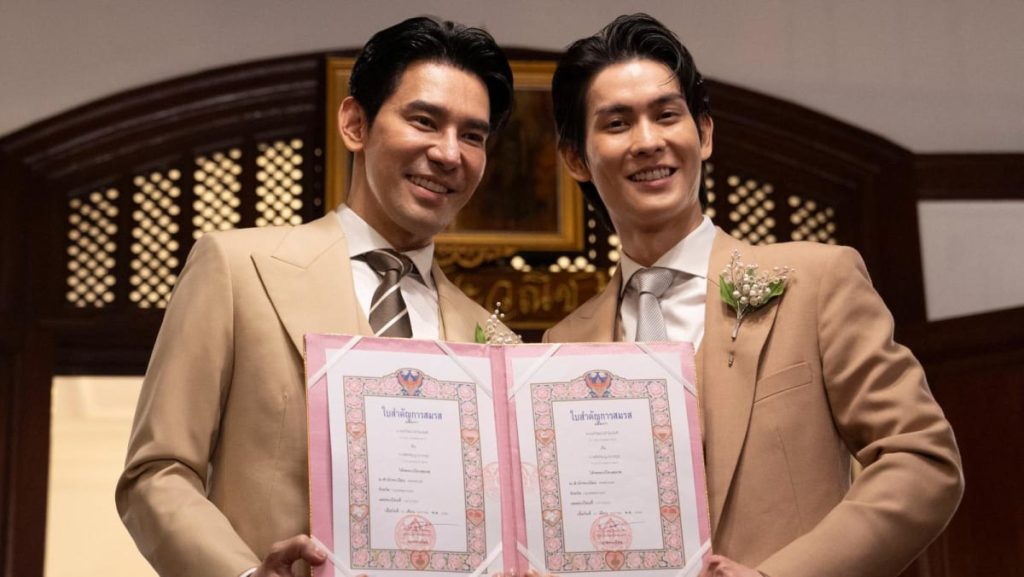Thailand’s journey toward marriage equality culminated on February 14, 2024, marking a historic moment for LGBTQ+ rights in Southeast Asia. The enactment of the same-sex marriage law, ratified by King Maha Vajiralongkorn in September 2023, positioned Thailand as the first country in the region and the third in Asia, following Taiwan and Nepal, to legally recognize same-sex unions. This landmark achievement is the result of years of persistent advocacy by LGBTQ+ activists and allies, who navigated political complexities and societal resistance to secure equal rights for same-sex couples. The law’s implementation signifies a substantial step towards inclusivity and reflects a growing global trend towards recognizing the fundamental right to marry regardless of sexual orientation.
Thailand’s reputation for tolerance towards the LGBTQ+ community has been long-standing, contributing to a relatively open social environment. Public opinion polls consistently demonstrate overwhelming support for marriage equality, further solidifying the societal shift towards acceptance and inclusion. However, beneath the veneer of tolerance, challenges persist. Traditional and conservative values, often rooted in religious beliefs, remain prevalent in many segments of Thai society. LGBTQ+ individuals still face subtle and overt forms of discrimination in various aspects of their lives, highlighting the ongoing need for education, awareness, and legal protections to ensure true equality.
The passing of the same-sex marriage law was celebrated by prominent figures, including former Prime Minister Srettha Thavisin, who acknowledged the collective effort that led to this historic change. His emphasis on the recognition of individuals as equal spouses underscores the law’s transformative impact on the legal and social landscape. The law’s implementation signifies a shift away from traditional gender binaries in legal frameworks and affirms the equal rights of all individuals to enter into marriage, regardless of gender. This development aligns with the global movement towards legal recognition of same-sex relationships, with over 30 countries having legalized same-sex marriage since the Netherlands pioneered this change in 2001.
The path to marriage equality in Thailand has been marked by perseverance and resilience in the face of political instability and social conservatism. Activists have navigated a complex political landscape, marked by coups and protests, to advocate for LGBTQ+ rights. Their unwavering commitment to equality has resulted in significant legal progress, paving the way for other Southeast Asian nations to consider similar reforms. The stories of couples like Kevin Pehthai Thanomkhet and Maple Nathnicha Klintgaworn, and Ploynaplus Chirasukorn and Kwanporn Kongpetch, exemplify the personal triumphs and long-awaited recognition afforded by the new law. Their experiences reflect the broader struggle for LGBTQ+ acceptance and highlight the profound impact of legal recognition on individual lives and families.
While the legalization of same-sex marriage represents a momentous victory, the fight for full equality continues. The focus now shifts towards addressing other critical issues, including legal gender recognition for transgender individuals. Advocates like Ploynaplus Chirasukorn emphasize the importance of recognizing gender identity beyond biological sex, highlighting the profound impact of legal and social validation on the well-being of transgender individuals. The struggle for comprehensive legal recognition and social acceptance underscores the ongoing need for advocacy and education to create a truly inclusive society.
The legalization of same-sex marriage in Thailand serves as a beacon of hope and progress for LGBTQ+ communities across Southeast Asia and beyond. This milestone achievement underscores the power of advocacy, the importance of legal reform, and the transformative potential of societal change. While challenges remain, the law’s enactment represents a pivotal moment in the journey towards full equality and sets a precedent for other countries in the region to follow. The ongoing pursuit of comprehensive legal recognition and social acceptance affirms the unwavering commitment of LGBTQ+ activists and allies to create a world where all individuals are treated with dignity, respect, and equality.

